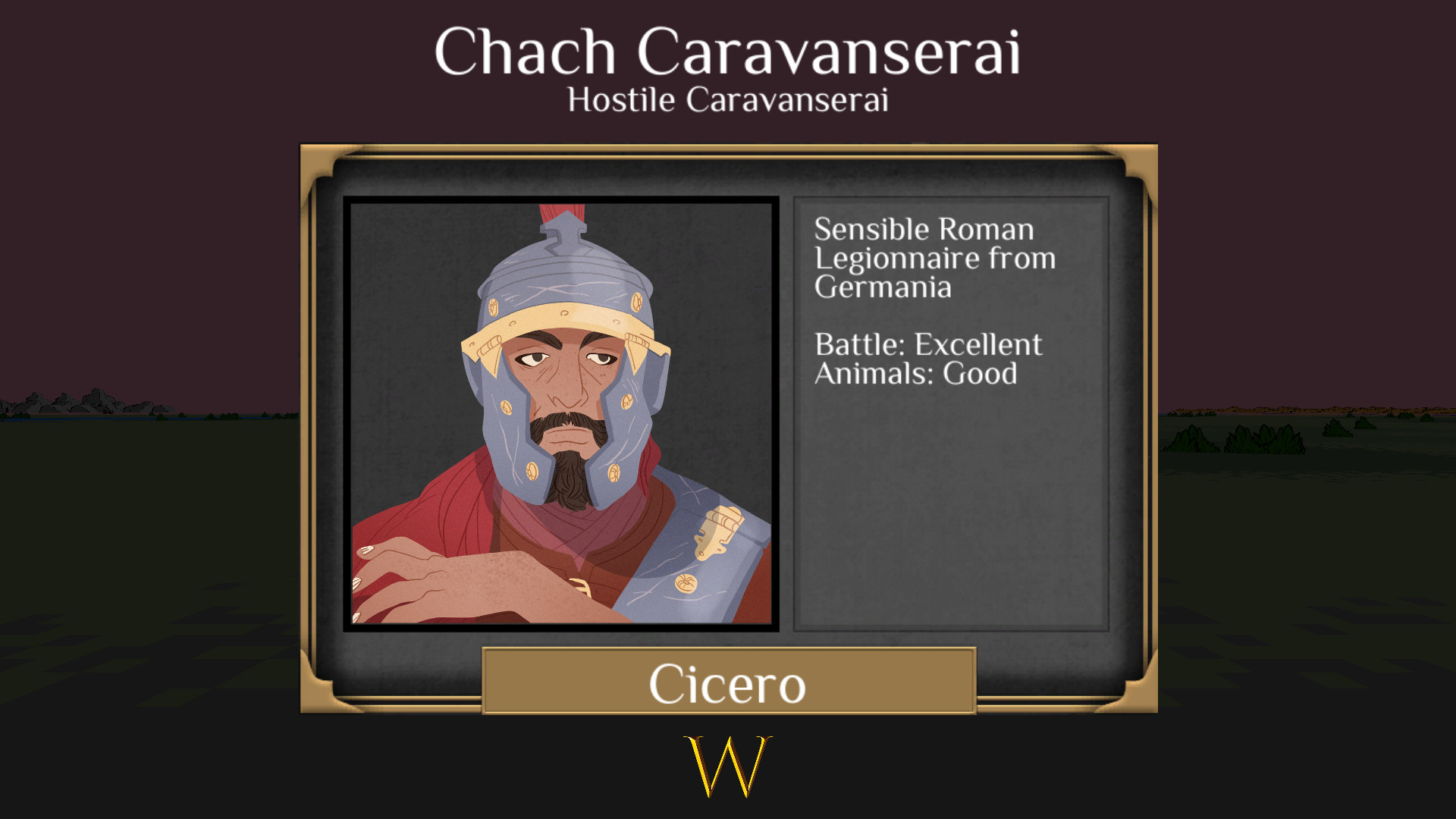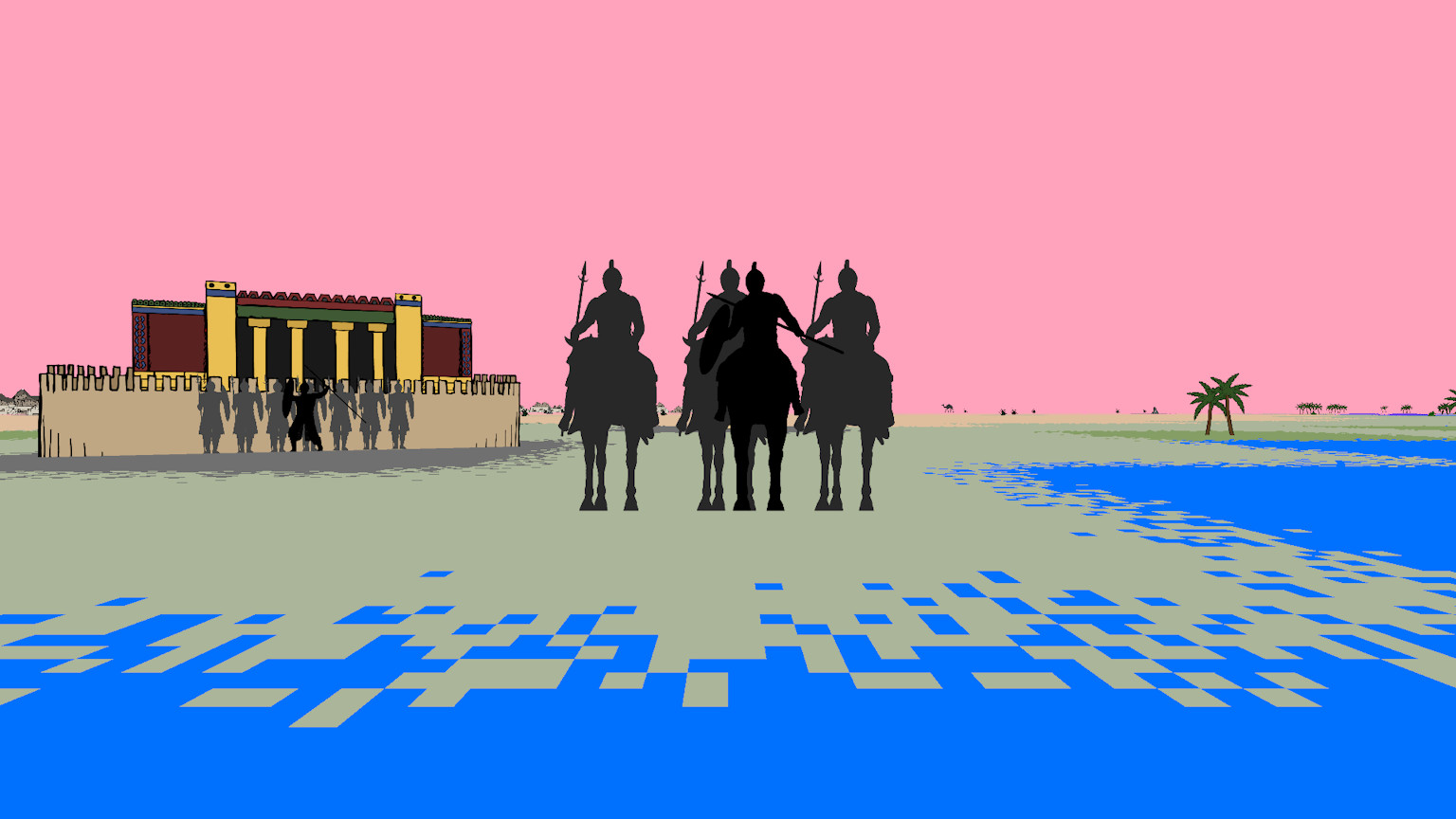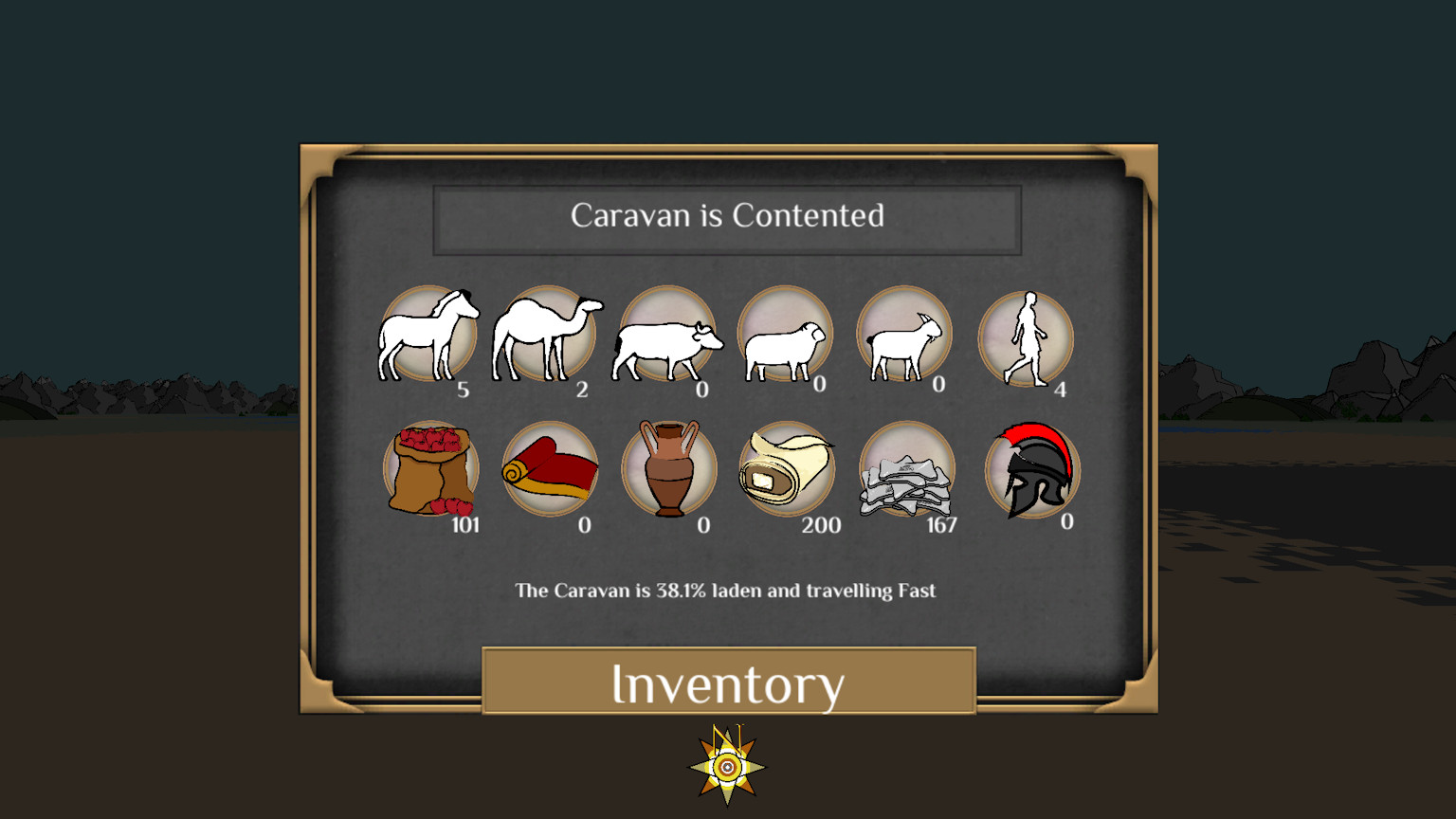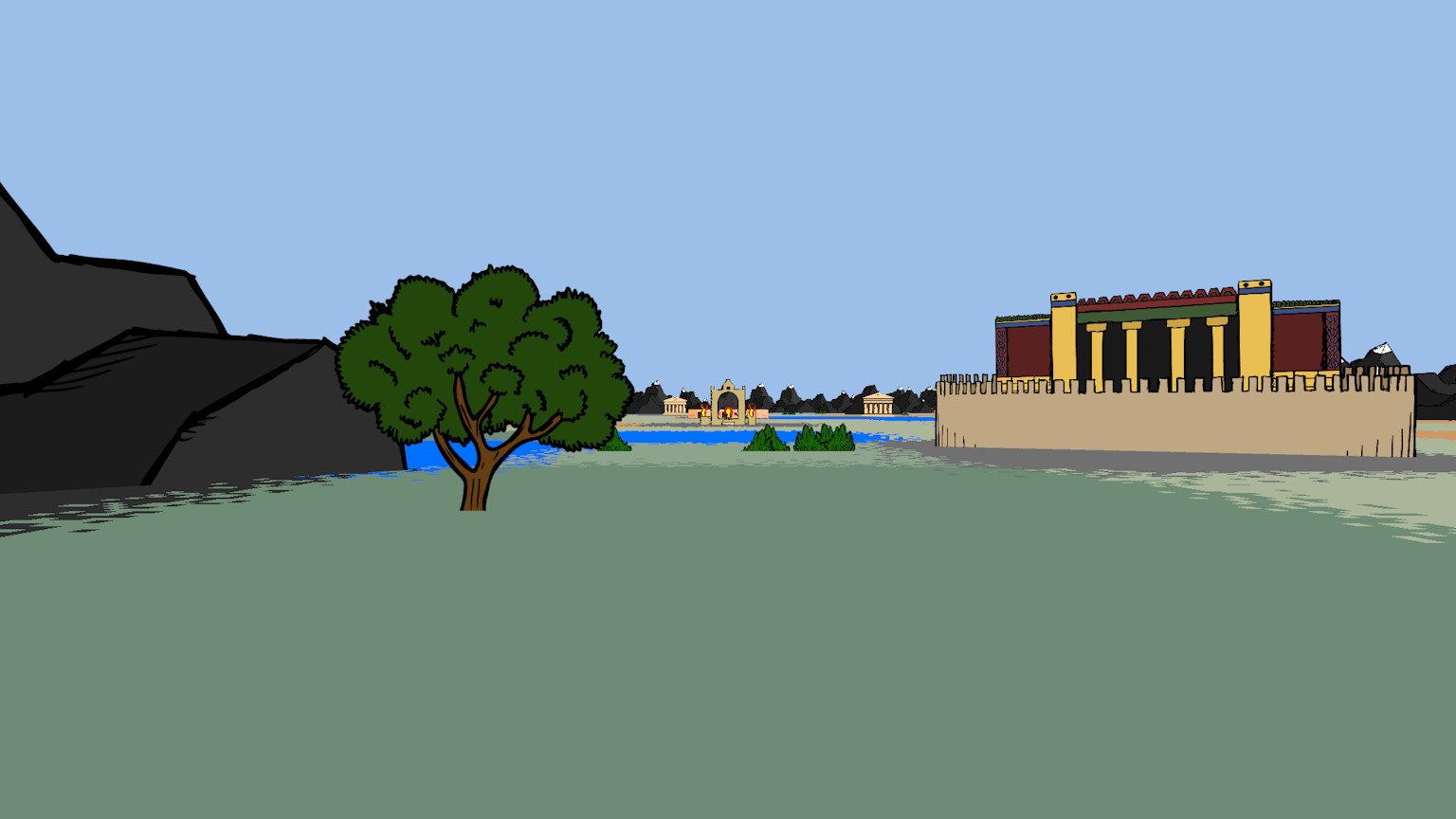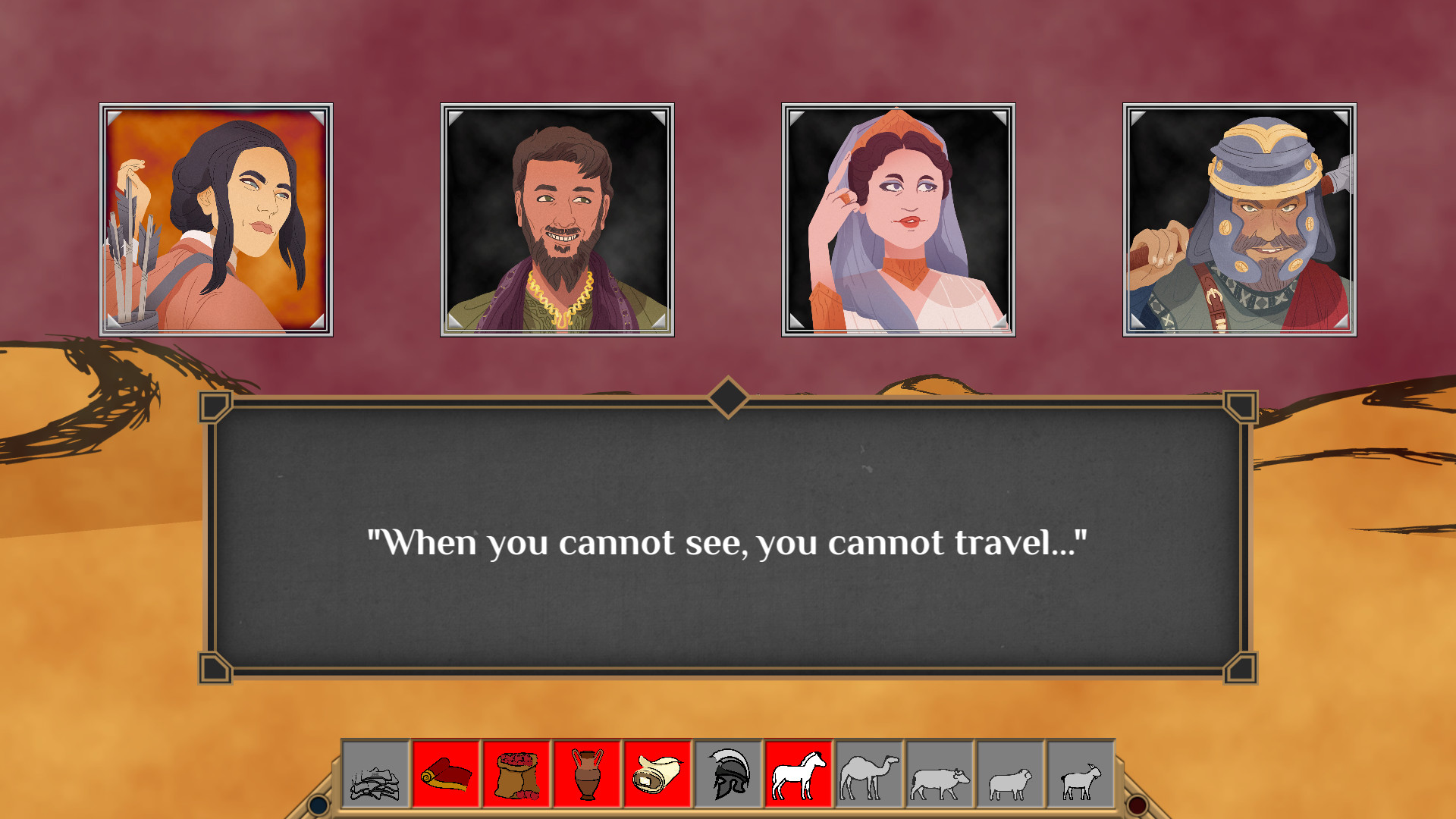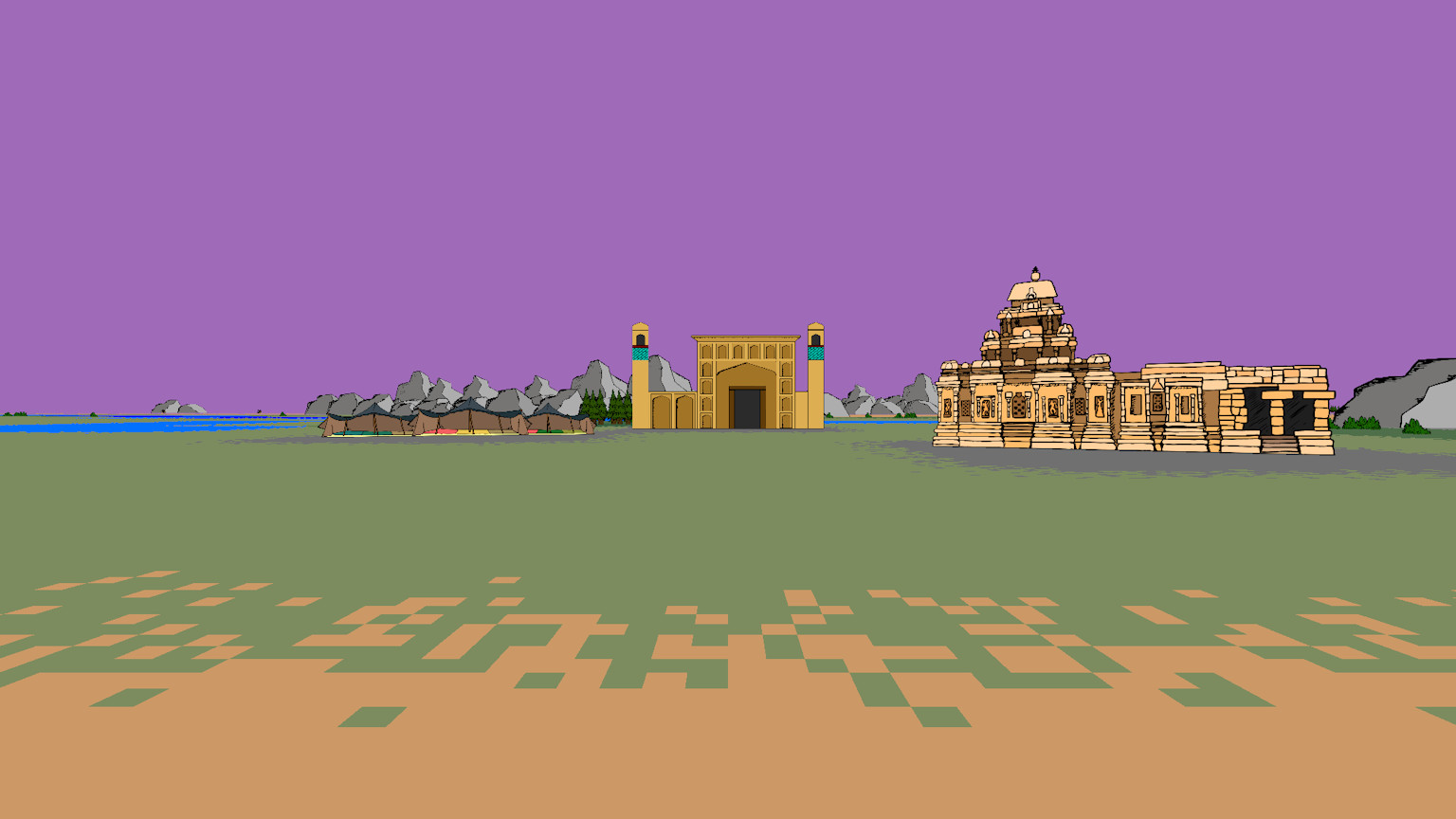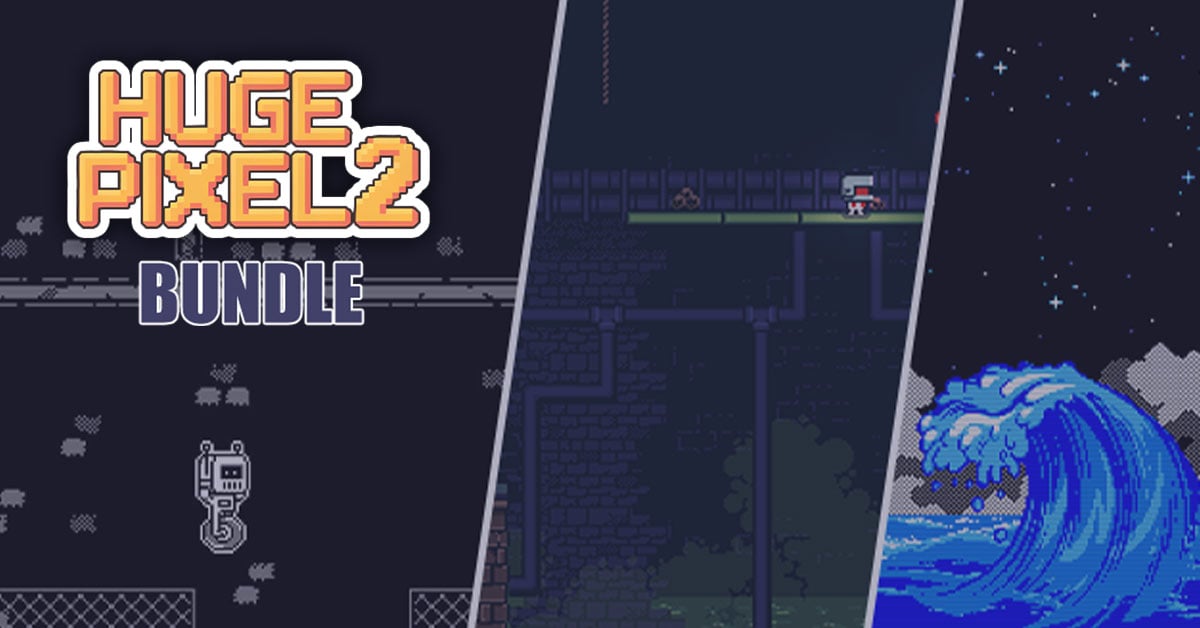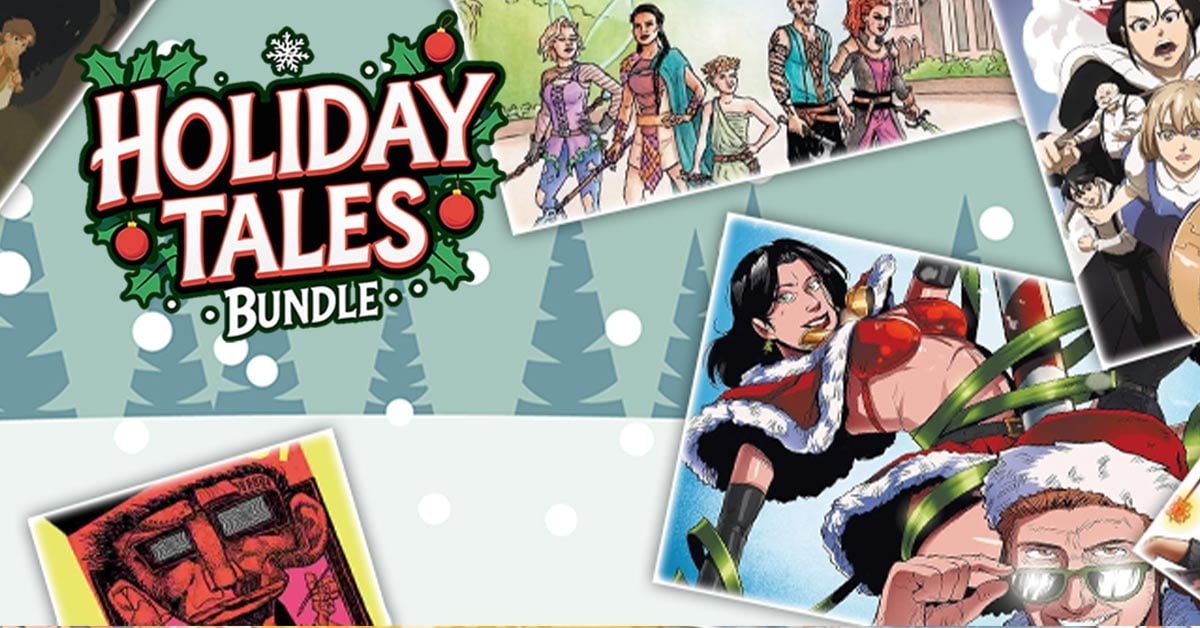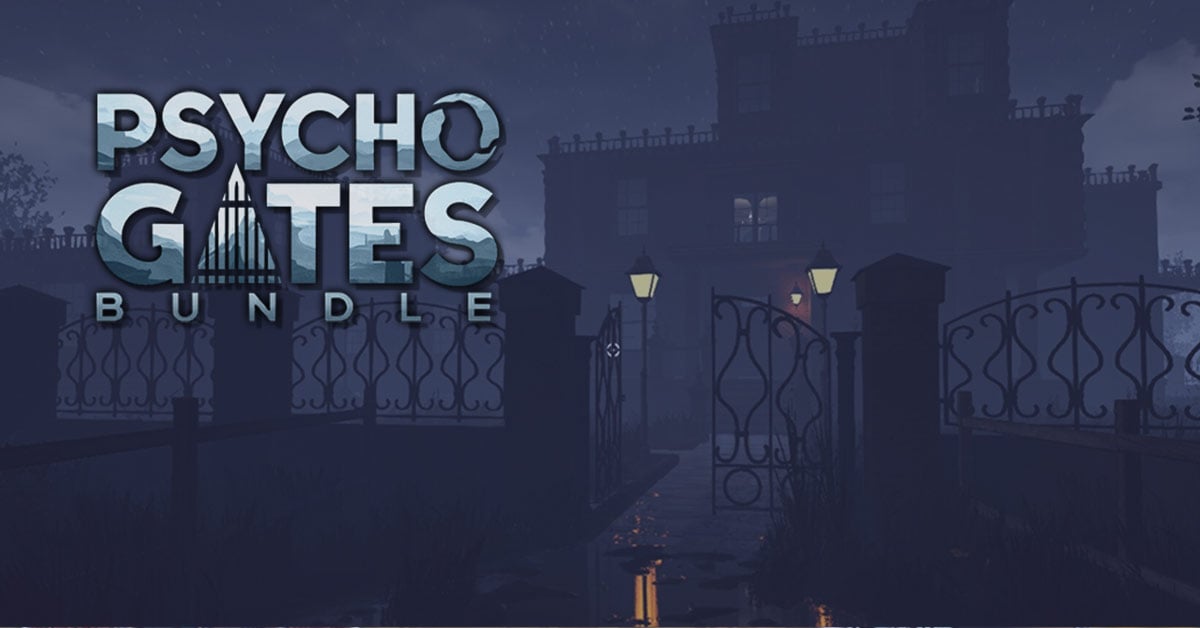From a parallel dimension where they still make keyboard-controlled, square-based RPGs in 2019 comes the new game from Chris Bateman (Discworld Noir, Ghost Master, Heretic Kingdoms). Can you puzzle out the secrets of the four distinct challenges await you in Silk?
- Explore the vast expanse of the Silk Road in an epic journey across dangerous wilderness as The Traveller.
- Overthrow Rome's greatest enemy, the powerful Parthian Empire, as The Rebel.
- Master the art of raiding to capture the fortunes of rival kingdoms as The Warlord.
- Carve out a trading empire between the brutal battlegrounds of the Silk Road as The Noble.
- Level up any seven of the thousands of Advisors in the game as you hire your perfect party, each of which unlocks hundreds of unique choices in the world
- Battle, Trade, or Explore: play the game your way as you amass a well-provisioned caravan or build your own renegade army
- Discover the lost genre of tile-based RPGs (Eye of the Beholder, The Bard’s Tale) remastered for the twenty first century
Knowing I wanted to make a game in tribute to The Lords of Midnight, the question was: how? Because making a direct spiritual successor to it was clearly not going to work Legions of Ashworld had already tried, and it had struggled because it was solely fans of the original who could possibly appreciate it. No, if I was going to create a game that spoke to why The Lords of Midnight was important to me, I was really going to be making a game about a square-based map. It was mapping, and using other peoples maps, that made those early game experiences for me, and this was especially so for The Bards Tale, which I painstakingly mapped by hand with graph paper, and then took great pleasure in my friends using my maps to complete the game after me.
So I knew I wanted to make this tribute game about exploration, but I also didnt want to pass up the opportunity to experiment with radical unexplored possibilities in narrative design, and for this I had another influence: King of Dragon Pass. I had always regretted missing out on RuneQuest, possibly the only classic 1980s RPG that I never got to play. King of Dragon Pass let me participate in Gregg Staffords extraordinary game by having been set in the world of Glorantha and being, in a very tangible sense about Glorantha. To play King of Dragon Pass is to enter into a fantasy world thats not like any others out there... its more Bronze Age than Medieval, its a world where gods and spirits are tangible and pressing in on mortal life. David Dunhams game is an incredible achievement, one that came to my attention because my colleague at International Hobo in the 2000s, Ernest Adams, waxed lyrical about its achievements in narrative design.
But what I really fell in love with in King of Dragon Pass was the Clan Ring, the set of people who advise you as to what decisions you could be taking as the game progresses. I became obsessed with how this worked, and dug into its designed systems and internal language (OSL), becoming ever more convinced that what was just another clever extra feature in that particular game could become the central element of a narrative design that was based upon an entirely different kind of play. Perhaps, the kind of play that would see the player striking out across three million square miles of wilderness....
The Clan Ring in King of Dragon Pass became the Advisors in Silk. Theyre your party, you hire them to your Caravan, and once you hire them theyre with you until the end of the game. That wasnt how the design began for a while, the paper design allowed the Advisors to die if they failed a skill check spectacularly. But as time went on, I came to realise that what I was doing with Silk in terms of letting the player explore the cultures of 200AD (just as King of Dragon Pass lets you explore the culture of Glorantha), was stronger in some ineffable sense if your Caravan was more than just a set of interchangeable pawns. The Caravan is your family in the game... and by necessity, its going to be a family of misfits, just like every party of adventurers in RuneQuest. Thats something that speaks to me as a player of games, and a lover of the strange. Its why even though Silk is set in 200AD, its also in a strange but understandable way, about Glorantha.
Minimum Setup
- OS: Ubuntu 16.04+
- Processor: SSE2 instruction set supportMemory: 4 GB RAM
- Memory: 4 GB RAM
- Graphics: Graphics card with DX10 (shader model 4.0) capabilities
- Storage: 1 GB available space
Recommended Setup
- OS: Ubuntu 16.04+
- Processor: SSE2 instruction set supportMemory: 4 GB RAM
- Graphics: Graphics card with DX10 (shader model 4.0) capabilities
- Storage: 1 GB available space
[ 6424 ]
[ 5886 ]
[ 1587 ]
[ 2438 ]
[ 482 ]

